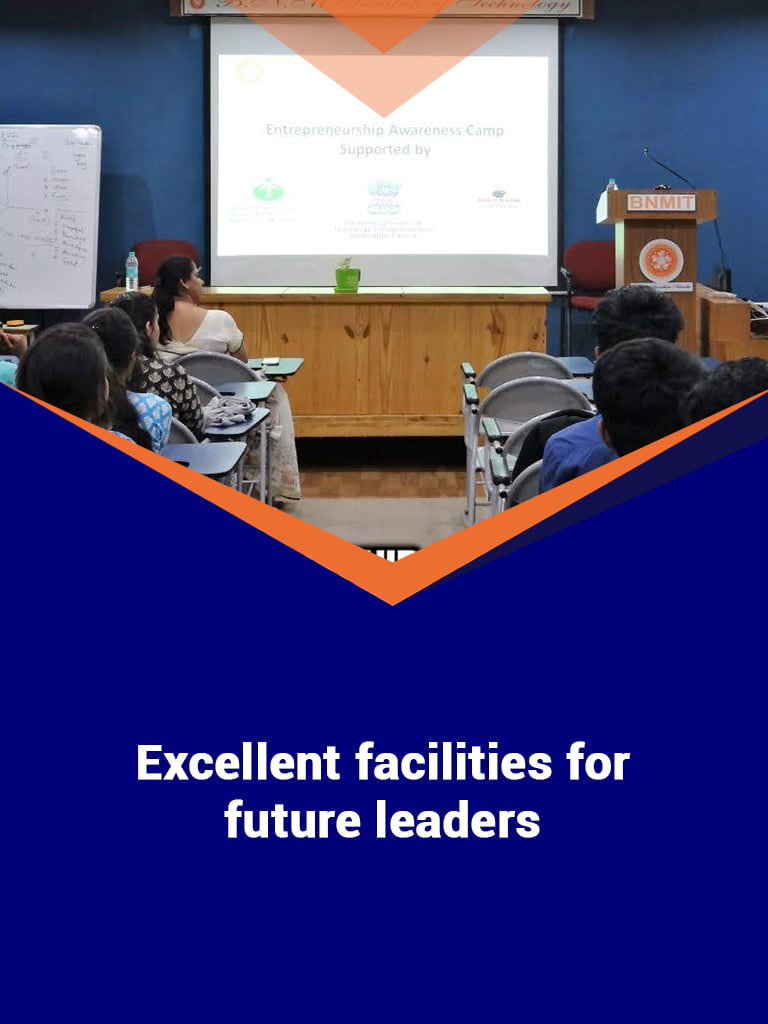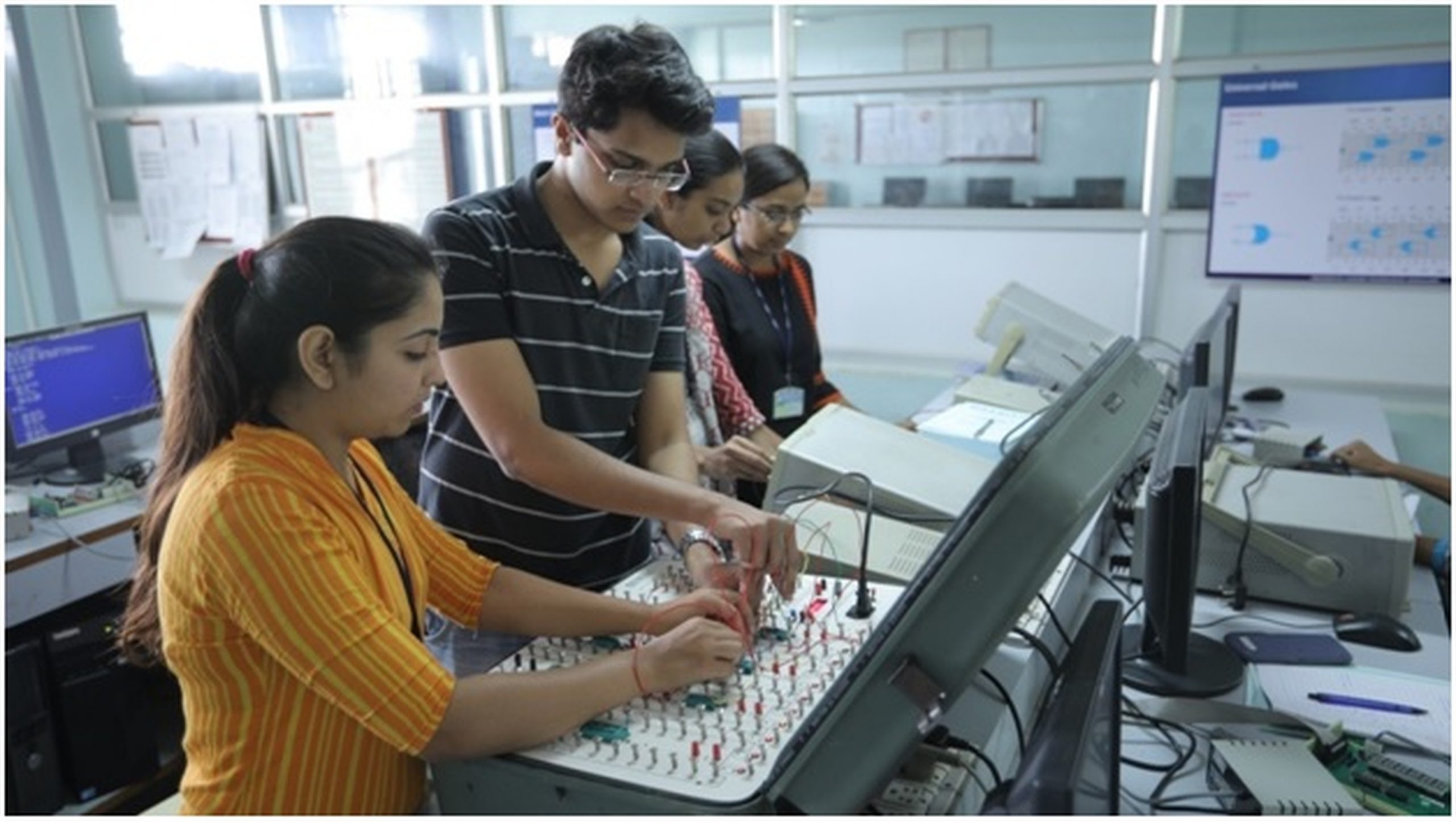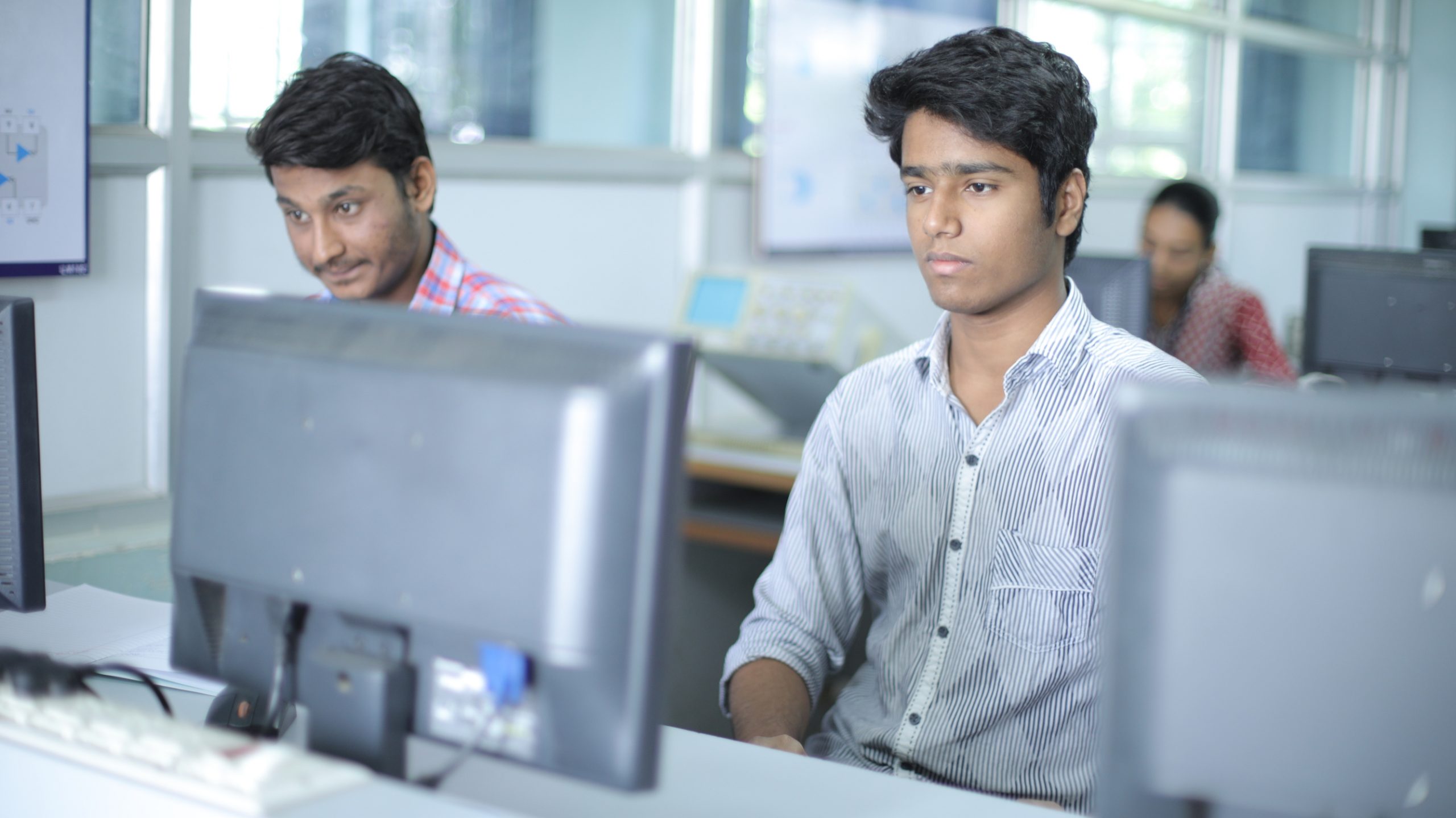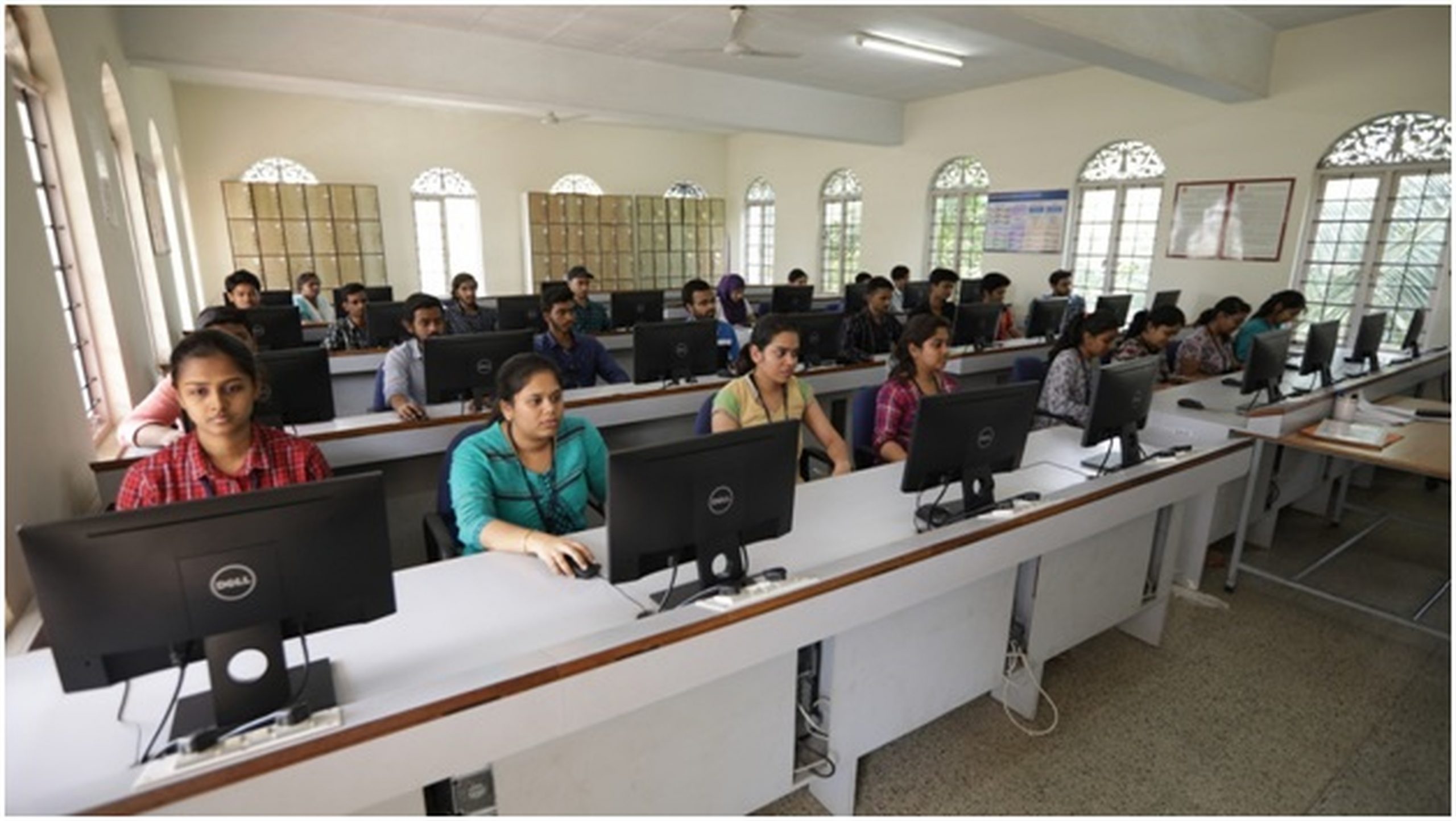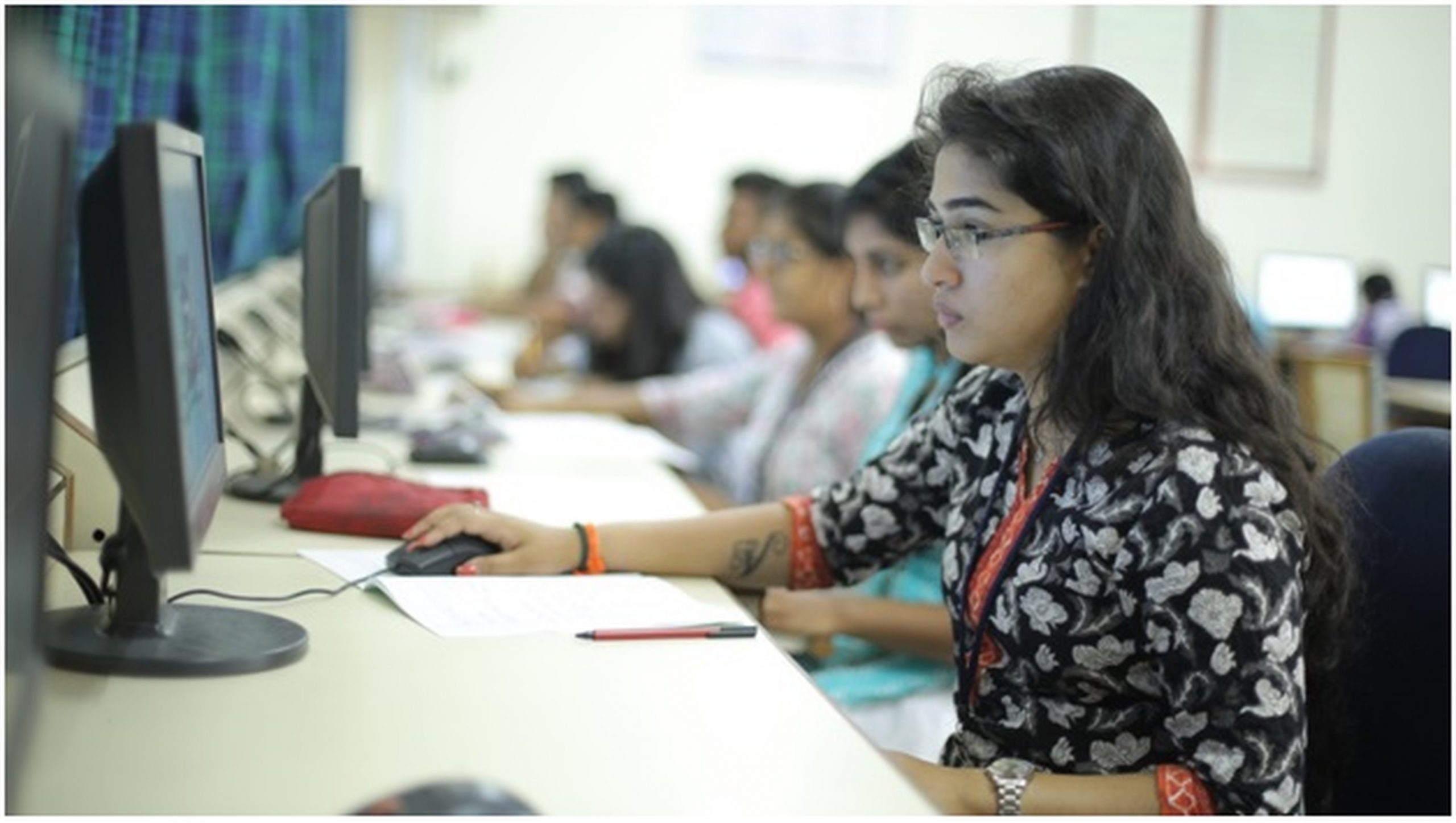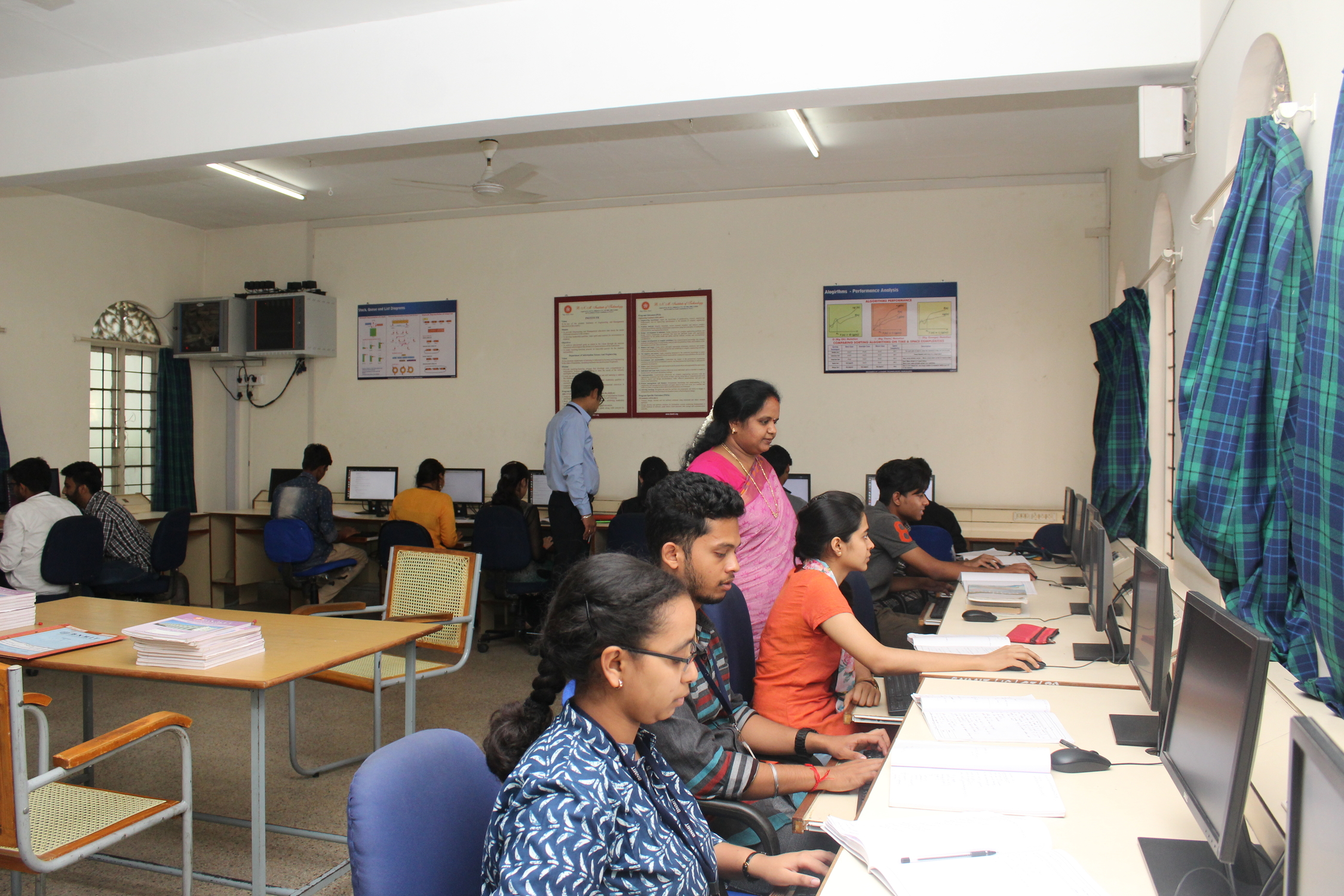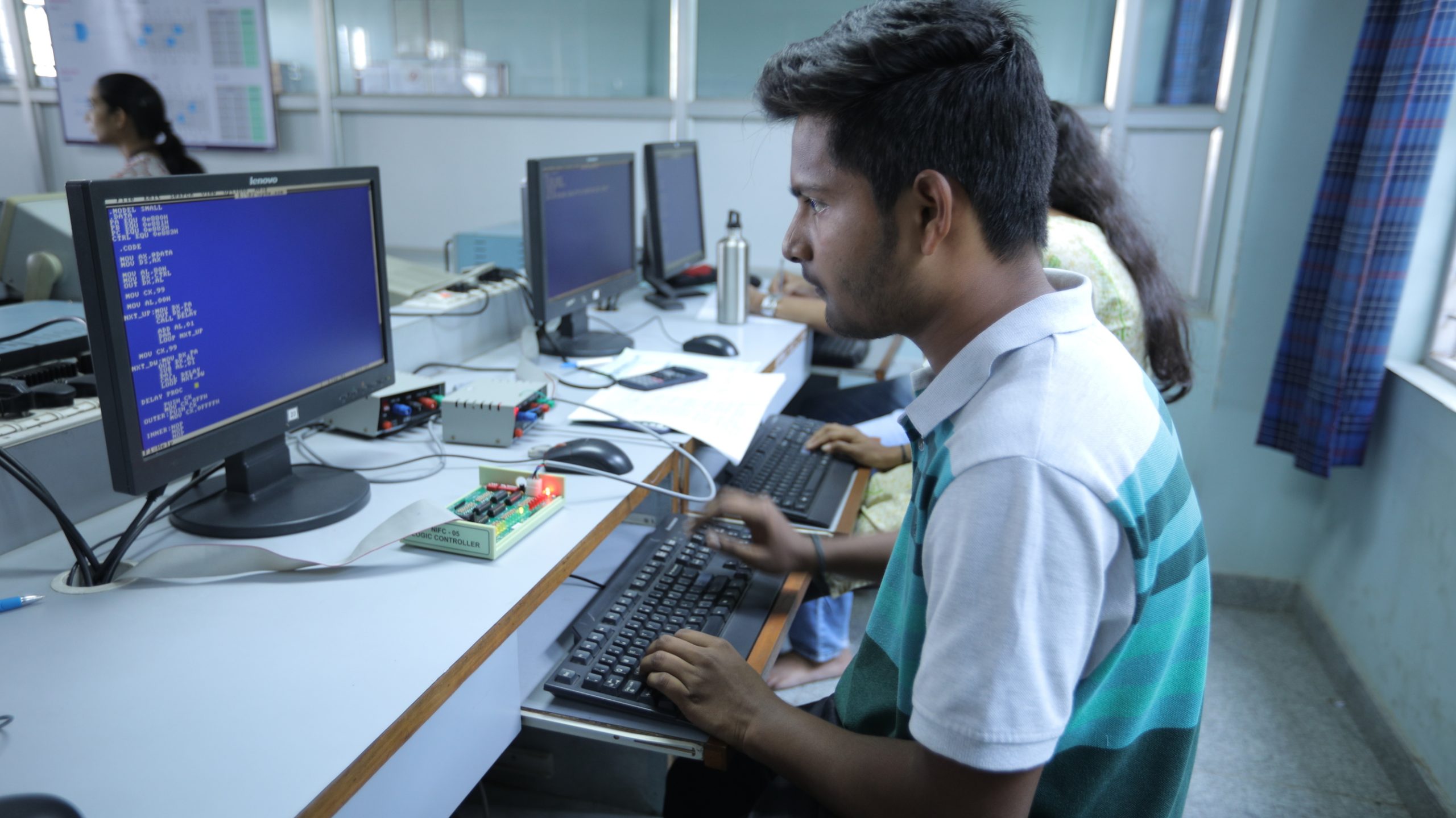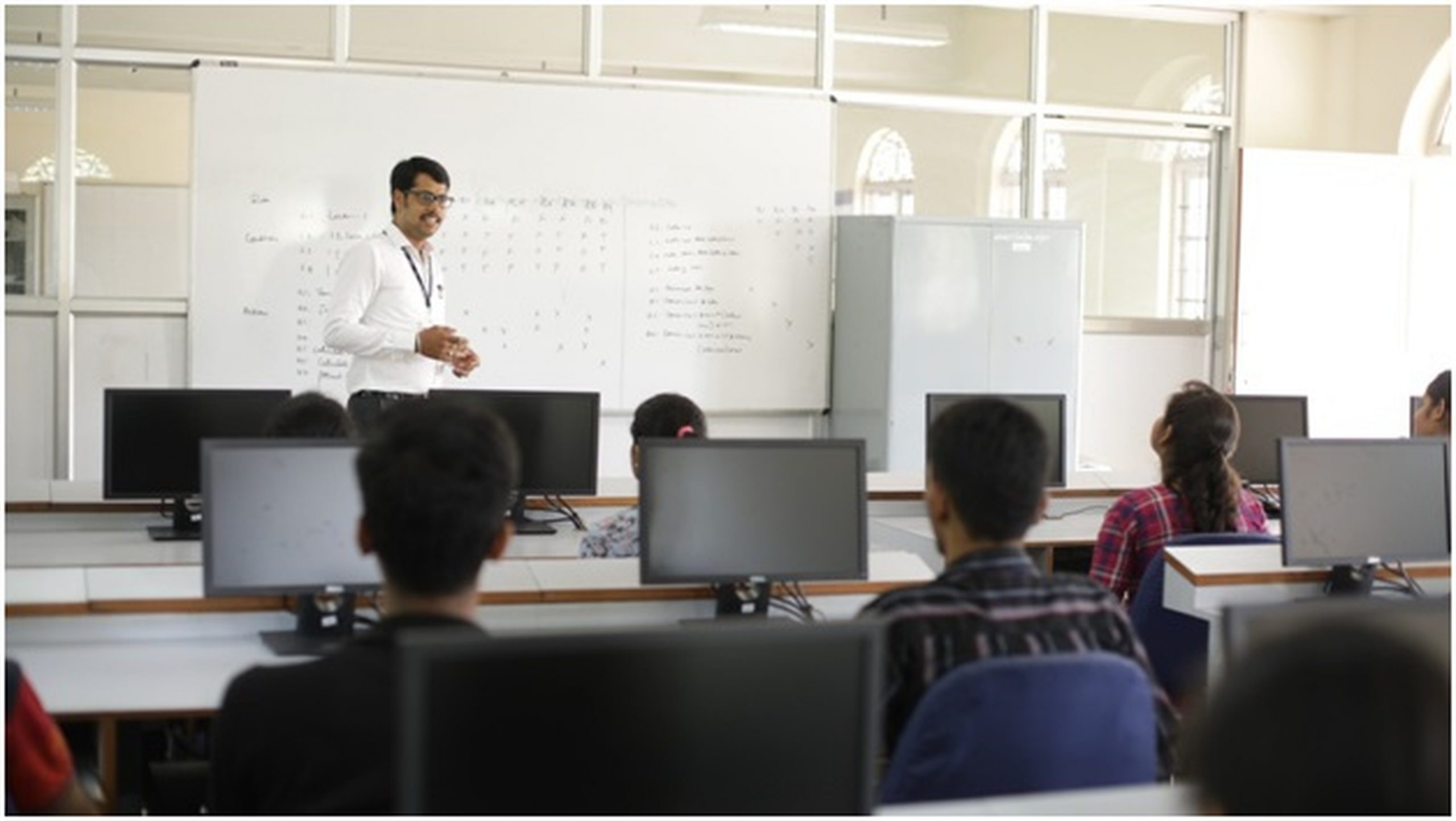Laboratory Information:
The department is well equipped with 6 laboratories. Laboratories are equipped with the latest machines with high-end configurations working in a fully networked environment, using client-server architecture. Each machine has full access to broadband internet highway. It provides an excellent learning platform for both student and researcher staff alike. Students have exclusive one-to-one computing facilities through well-furnished separate Labs. The labs have 124 PCs with the latest configurations running Windows as well as Linux. The laboratories are supported with software such as Oracle 9i, MS Visual Studio, MAT Lab, Microsoft word 2007, gcc compiler, g++ compiler, CC Compiler, Turbo C++ Compiler, Netbeans, Ubuntu, MySQL, Eclipse, Apache Web Server and JDK.
Data Structures Lab
Data Structures and Applications Lab provides in depth knowledge about different data structures that is used to store the data such as stacks, queues, linked list, trees etc. The programs helping students in understanding working of various data structures studied in theory syllabus.The study experiment helped in understanding the need and working of Data Structures used in the real-time applications.
Analog and Digital Electronics Laboratory
Analog and Digital Electronics laboratory enhances hands on experience of the students to design different electronic circuits with bread boards and with different active & passive components. The hardware experiments conducted in the lab includes implementation of various digital and analog circuits. The components used in the lab for the conduction of hardware experiments are Digital Trainer Kit, Cathode ray oscilloscope (CRO), Variable power generator, function generator etc.
The software experiments are the simulation of various digital and analog circuits using Verilog or VHDL language. The software used to simulate digital circuits is Xilinx IDE and analog circuits are Pspice simulator.
Design & Analysis of Algorithms Lab
The objective of this lab is to build a solid foundation in algorithms and their applications. Students will learn several fundamental principles of algorithm design, complexity analysis of Algorithms, followed by problems on Graph Theory and Sorting methods.This Lab enables students to understand the various types of algorithms, analyze the level of complexity in choosing and applying algorithms for the problems to create a real time application. The study experiment helped in understanding the need and working of algorithms used in the real-time applications.
Microprocessor and Microcontroller Laboratory
The objective of Microprocessor and Microcontroller Laboratory is to design, develop and execute the assembly language programs written using 8086 instruction set and ARM 7 instruction sets. The programs developed using 8086 instruction set are executed using MASM ( Microsoft Assembler) software and ARM related programs using KEIL software. The experiments related to 8086 microprocessor of the lab includes interfacing various external kits such as Logical controller interface, 7-segment display interface, stepper motor interfaces and Digital to Analog Convertor (DAC) interface. The hardware experiments related to ARM -7 microcontroller of the lab includes interfacing various external kits such as liquid crystal display (LCD), stepper motor interfaces and power saving system.
DBMS Laboratory With Mini Project
The objective of this course is to develop the ability to design, implement and manipulate databases as well as to build Database management systems. This course provides an introduction to systematic database design approaches covering conceptual design, logical design and an overview of physical design. This course consists of a total of 5 experiments that help students to understand the information taught in theory classes. The SQL query execution made them to understand the concepts of set operations, relational algebra, data manipulation, view. The laboratory sessions provide information about introduction to DBMS lab, creation of queries, organization of records, data manipulation, and transaction management techniques.
The course includes a Mini Project, which helps to apply various SQL operations and techniques on the database like concurrency control, relational algebra, views, normalization and transaction processing, etc.
Computer Networks Lab
Computer networks form an integral part of a computer science and engineering graduate, they learn different types of network topologies, management commands, OSI model, various protocols and their implementation. In this lab, students demonstrate the operation of networks and its management commands using network simulation tool i.e, NS2. They also find the performance of GSM and CDMA wireless networks. In this lab they implement the Data Link Layer and Transport Layer protocol.
Software Testing Lab
Software testing is the process of evaluating the quality of a software product or a service under test. In this lab for the given problem, the students design, execute and test the actual output with the expected output for the given set of inputs. Students learn to apply various types of testing techniques such as boundary value analysis, equivalence class partitioning, decision table testing, data flow testing and path testing. The students learn to do manual testing as per the given requirements.
File Structures Lab
The objectives of the Lab are to understand the principles and main techniques of file structure design and implement the main techniques of file structure design within a file system such as Sequential file B-tree, B+-tree, Hashing. This course consists of 8 experiments which help students to understand information taught in theory classes. Fixed Length, Variable Length, RRN programs help the students to understand the Field and record organization and record access in a better way. The course includes a Mini Project, which helps to apply various File Organization techniques like Simple Indexing, Secondary Indexing, B tree, B + Tree, Hashing with collision resolution, Transaction management or similar applications not limited to these.
Web Programming Lab
The objective of this lab is to design web pages using markup languages like XHTML, CSS, PHP, and MySql. It mainly concentrates on the development of webpages. The lab also concentrates on backend designing of web pages by using server-side scripting, PHP and database MySql. The programs for front end development and back end development are executed on Ubuntu operating system. The mini-project implementation and demonstration will be carried out in the lab by a team of two or three students by using the languages and tools of their preferences.
Machine Learning Lab
Machine learning lab includes the implementation of various machine learning algorithms like supervised, unsupervised and reinforcement learning. The objective of this lab is to give an insight on how to train the machine using various algorithms that they learn in the theory. They also learned how to find the relevant datasets and how to use them in their program. The supervised learning algorithms like Find-S, Candidate key elimination, Decision tree learning, Back propagation neural networks, Baye’s classification algorithms were implemented using Python. The course also includes the implementation clustering algorithms like EM algorithm, K-means, KNN and Locally Weighted Regression algorithm using python.
Project Lab
There is the main project, in the 8th semester to enhance the technical caliber of students. Students are made familiar with their projects. A dedicated unique Project Lab is designed to give the students the best of facility and exposure to take up their projects to complete their degree requirements. Projects related to societal, cutting edge and research areas are currently being pursued by students.
Department Library
The department maintains a Library for staff and students, which includes reference books, university question papers, seminar and project reports.
Teaching Learning Method
The department has a well equipped audio-visual class rooms consisting of computer with LCD, OHP and other teaching software. With E-Shikshana, the college is now well equipped for e-classes.


